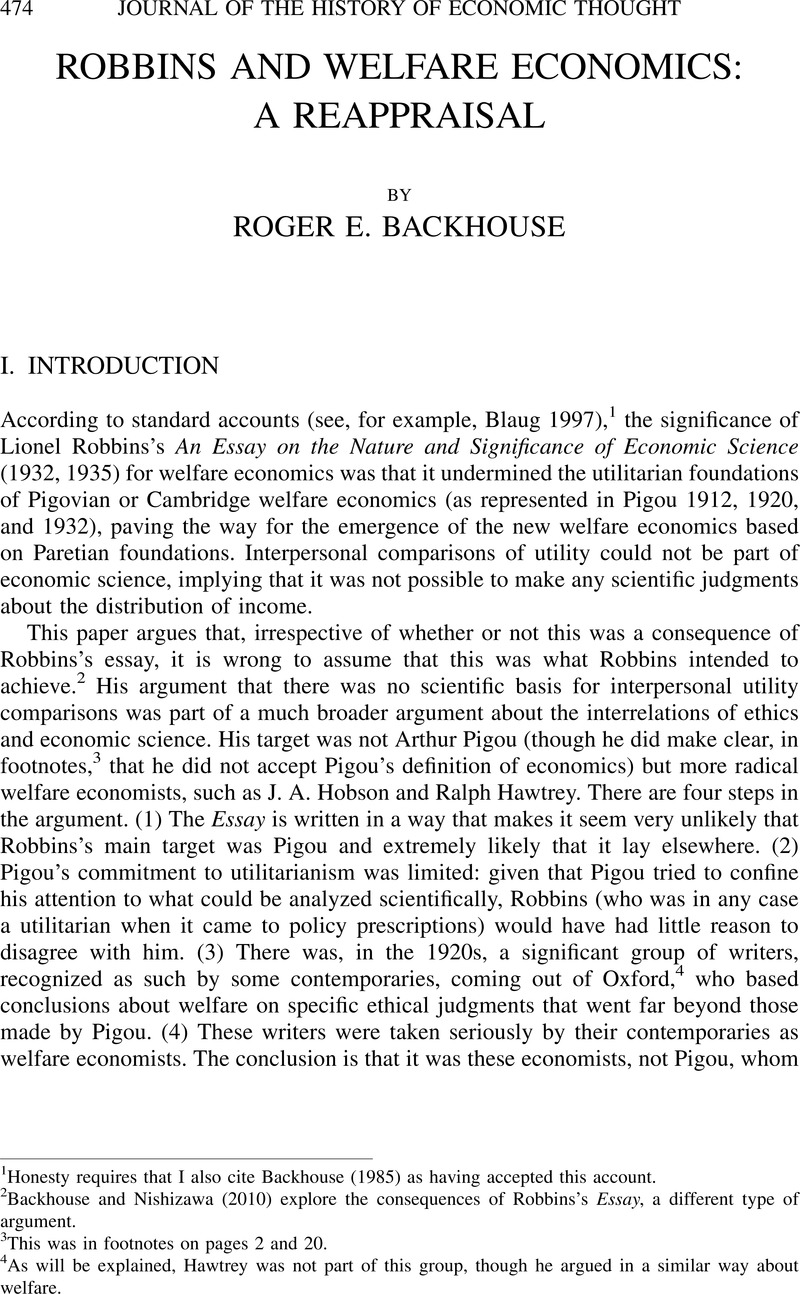Crossref Citations
This article has been cited by the following publications. This list is generated based on data provided by Crossref.
BACKHOUSE, ROGER E.
and
MEDEMA, STEVEN G.
2009.
ROBBINS'SESSAYAND THE AXIOMATIZATION OF ECONOMICS.
Journal of the History of Economic Thought,
Vol. 31,
Issue. 4,
p.
485.
Backhouse, Roger E.
and
Nishizawa, Tamotsu
2010.
No Wealth but Life.
p.
223.
Medema, Steven G.
2010.
No Wealth but Life.
p.
42.
Edwards, José M.
and
Pellé, Sophie
2011.
Capabilities for the Miserable; Happiness for the Satisfied.
SSRN Electronic Journal,
Lee, Frederic S.
2011.
The Pluralism Debate in Heterodox Economics.
Review of Radical Political Economics,
Vol. 43,
Issue. 4,
p.
540.
EDWARDS, JOSÉ M.
and
PELLÉ, SOPHIE
2011.
CAPABILITIES FOR THE MISERABLE; HAPPINESS FOR THE SATISFIED.
Journal of the History of Economic Thought,
Vol. 33,
Issue. 3,
p.
335.
FAITH, ROSAMOND
SCHOFIELD, P. R.
HEALEY, JONATHAN
MURPHY, ANNE L.
BRADLEY, KATE
TAYLOR, JAMES
and
BROWNLOW, GRAHAM
2011.
Review of periodical literature published in 2009.
The Economic History Review,
Vol. 64,
Issue. 1,
p.
256.
Collewet, Marion
2014.
Approaches to Well-Being, Use of Psychology and Paternalism in Economics.
Economics,
Vol. 8,
Issue. 1,
Barbaroux, Nicolas
and
Bellet, Michel
2017.
L’économie comme science et les jugements de valeur politiques.
Revue économique,
Vol. Vol. 68,
Issue. 2,
p.
219.
Masini, Fabio
2018.
Decision-making processes and multilayered institutional order: Lionel Robbins’s legacy.
Cambridge Journal of Economics,
Vol. 42,
Issue. 5,
p.
1459.
Howson, Susan
2019.
The Palgrave Companion to LSE Economics.
p.
347.
Hauser, Ignacio
2023.
Welfare, state, and values: the winding road of the normative approach to inequality measurement (1912–1970).
The European Journal of the History of Economic Thought,
Vol. 30,
Issue. 5,
p.
832.
Desmarais-Tremblay, Maxime
Johnson, Marianne
and
Sturn, Richard
2023.
Mapping the history of public economics in the twentieth century: an introduction to the special issue.
The European Journal of the History of Economic Thought,
Vol. 30,
Issue. 5,
p.
689.





